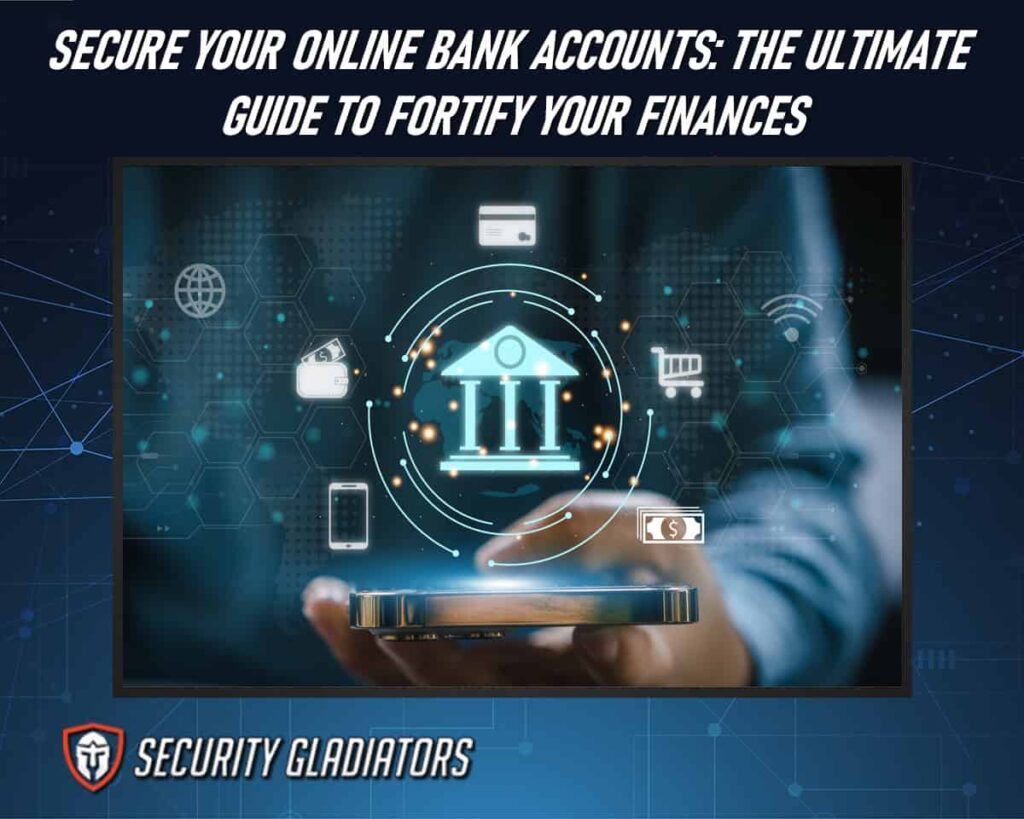
Table of Contents
What Is Online Banking Security
Online banking security encompasses the measures and protocols implemented by financial institutions to safeguard customers’ sensitive information and financial transactions from various threats in the digital realm. These threats include cyberattacks, phishing attempts, malware infections, and identity theft. Robust cybersecurity practices, such as encryption, multi-factor authentication, and real-time transaction monitoring, are crucial in ensuring the integrity and confidentiality of online banking transactions. Additionally, enabling customers to access online bank accounts overseas requires the establishment of secure channels, often involving virtual private networks (VPNs) and geo-restriction controls, to prevent unauthorized access and ensure data privacy across different geographic locations.
Best Practices for Online Banking Security
Below are the best practices that can help you secure your online banking accounts and apps:
1. Choose Strong and Unique Passwords
Selecting robust and distinctive passwords is essential for enhancing the security of your digital financial accounts and applications. A secure online banking experience begins with creating a strong password that is not easily guessable or cracked by hackers. A strong password typically consists of a combination of upper and lowercase letters, numbers, and special characters. It is advisable to avoid using common words, personal information, or sequential patterns in your passwords as these can be easily exploited.
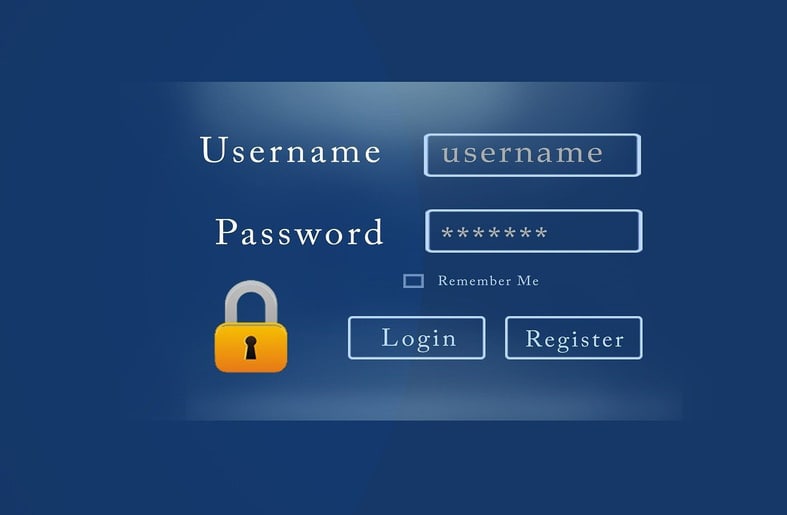
Additionally, it is crucial to use unique passwords for each online banking account you possess to minimize the risk of unauthorized access. By employing different passwords across various platforms, even if one account gets compromised, the others remain protected. To manage multiple complex passwords effectively, consider using a password manager tool. Password managers provide a secure vault where you can store all your login credentials in an encrypted form. They also have features that generate strong and random passwords for you when creating new accounts or updating existing ones. This reduces the burden of memorizing numerous unique passwords while ensuring data security measures are met. However, it is important to choose a reputable password manager from trusted sources and regularly update it to benefit from the latest security enhancements.
2. Steer Clear of Public Wi-Fi
It is crucial to exercise caution when accessing the internet through public Wi-Fi networks in order to protect sensitive financial information. Public Wi-Fi networks are often unsecured, making them vulnerable to hackers and cybercriminals who can intercept and access personal information. To ensure a secure internet connection every time you want to access online banking, it is recommended to steer clear of public Wi-Fi and follow these best practices:
Use a Virtual Private Network (VPN)
A VPN encrypts internet traffic, creating a secure connection between your device and the website or app you are accessing. This helps protect your personal information from being intercepted by malicious actors.
Update Your Mobile Banking App Regularly
Developers release updates to fix security vulnerabilities and enhance overall app security. By keeping your mobile banking app up-to-date, you reduce the risk of exploitation by hackers.
Disable Automatic Wi-Fi Connections
Many devices automatically connect to available Wi-Fi networks, including public ones. It is advisable to disable this feature as it prevents your device from connecting unknowingly to an insecure network.
Avoid Accessing Sensitive Information
While using public Wi-Fi, refrain from accessing websites or apps that require you to enter sensitive financial information such as credit card details or passwords. Wait until you are on a secured network before performing these transactions.
3. Sign Up for Banking Alerts
By signing up for banking alerts, individuals can receive timely notifications and updates regarding their financial transactions and account activities. This is particularly important in ensuring the security of online bank accounts. Online banking safety has become a significant concern with the increasing use of technology for financial transactions. By opting for banking alerts, users can stay informed about any suspicious or unauthorized activities on their accounts. These alerts can be sent via email, text message, or push notifications on mobile banking apps.
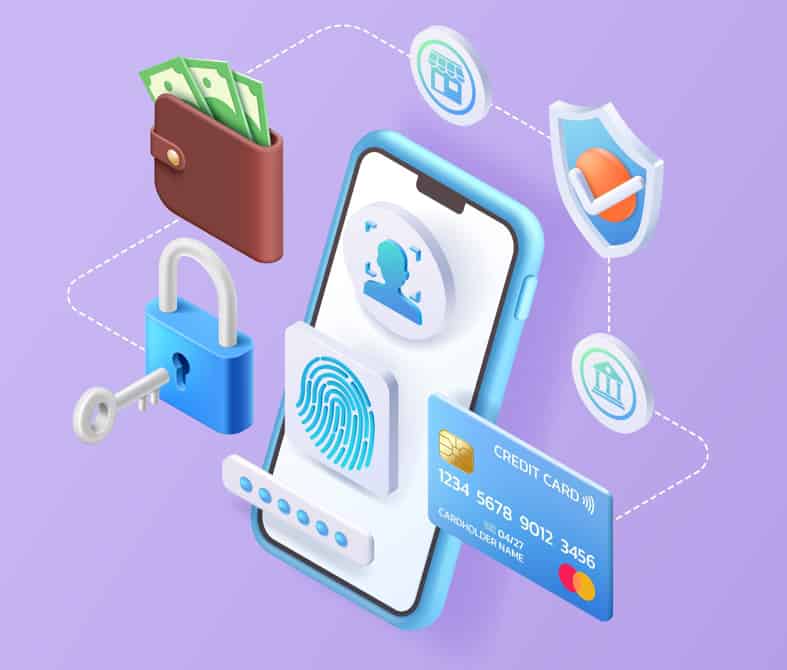
Banking alerts provide an extra layer of protection by allowing users to monitor their account activities in real time. They can receive notifications whenever there is a login attempt from an unrecognized device or when large withdrawals or transfers are made from their online bank accounts. This helps individuals detect any fraudulent activities promptly and take necessary actions such as contacting the bank to freeze their accounts or change their login credentials. Moreover, by keeping track of their account balances through regular alerts, users can notice any discrepancies and report them immediately to prevent further financial losses. Signing up for banking alerts is an effective way to enhance online banking safety. By receiving timely notifications about financial transactions and account activities, individuals can detect unauthorized access or fraudulent activities promptly. This proactive approach allows users to take immediate action to protect their online bank accounts and mitigate potential risks.
4. Beware of Phishing Scams
Phishing scams pose a significant threat to individuals’ online banking security, requiring vigilance and awareness to avoid falling victim to these fraudulent schemes. Phishing refers to the act of tricking individuals into revealing their personal information, such as usernames, passwords, or credit card details, by posing as a legitimate entity. These scams are typically conducted through emails, text messages, or phone calls that appear authentic but are designed to deceive unsuspecting victims.
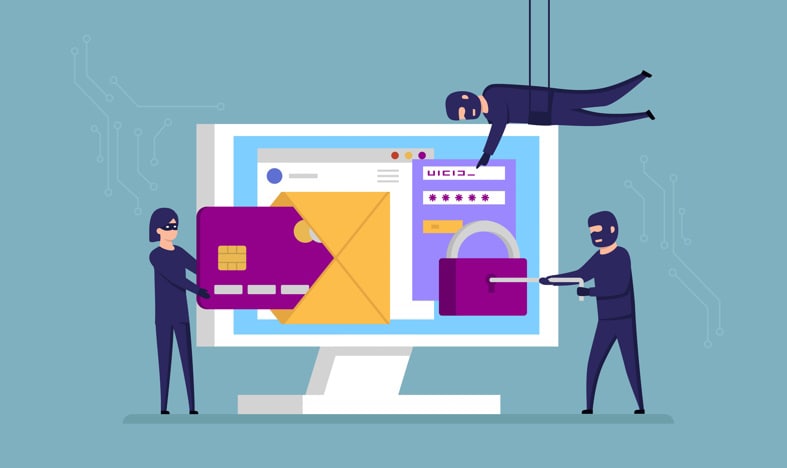
To secure online bank accounts and apps against phishing scams, users should be cautious when clicking on links or downloading attachments from unfamiliar sources. It is advisable to verify the legitimacy of the sender before taking any action. Also, it is essential to keep software and applications up-to-date with the latest security patches as they often contain fixes for vulnerabilities that scammers may exploit. Additionally, users should be wary of providing personal information in response to unsolicited communications and should instead contact their financial institution directly through official channels if there are any concerns about account security.
5. Choose Trustworthy Financial Apps
To ensure the reliability and integrity of financial transactions if you bank online, selecting reputable financial applications is paramount. With the increasing popularity of online banking, it is crucial to choose trustworthy financial apps that prioritize online security. These apps serve as a convenient platform for users to access their online bank accounts and carry out various transactions seamlessly. To get the most secure online banking app, it is important to consider the reputation and credibility of both the app developer and the associated financial institution. Reputable online banks often have their own dedicated mobile banking apps that are designed with robust security measures in place. These institutions invest heavily in ensuring the safety of their customers’ data by implementing encryption protocols, multi-factor authentication, secure communication channels, and regular security updates.
Note:
Additionally, it is advisable to read reviews and ratings from other users before choosing a specific app. This can provide valuable insights into any potential issues or vulnerabilities present in the application. Furthermore, verifying the legitimacy of an app by checking its availability on official app stores such as Google Play Store or Apple App Store adds an extra layer of assurance.Enable two-factor authentication (2FA)
Two-factor authentication (2FA) significantly enhances the security of online banking by introducing an additional layer of verification beyond the traditional username and password. In this system, users are required to provide two separate forms of authentication to access their accounts. Typically, the first factor involves something the user knows, like a password, and the second factor is something the user possesses, such as a one-time code generated by a mobile app, a hardware token, or a text message sent to their registered phone number. This dual-factor approach adds a crucial element of complexity for potential attackers, making it considerably more challenging to compromise an account with just stolen credentials.
By implementing 2FA, online banking platforms mitigate the risks associated with common security vulnerabilities, such as password breaches and phishing attacks. Even if an attacker manages to acquire a user’s password, they would still need the second authentication factor, which is dynamic and time-sensitive, to gain access. This added layer of security greatly reduces the effectiveness of brute-force attacks, where attackers systematically try various password combinations. Additionally, 2FA provides protection against phishing scams, as the authentication code or token is usually linked to the specific banking platform and cannot be used to log in to other sites.
Is Online Banking Safe?
The safety of online banking is a paramount concern for individuals seeking to conduct financial transactions securely. With the increasing popularity of digital banking, it is crucial to understand the measures taken by financial institutions to ensure secure online banking. Many banks and credit unions have implemented robust security protocols to protect their customers’ savings accounts and personal information. These institutions often employ encryption techniques to safeguard data transmission between the user’s device and their servers. Additionally, they regularly update their systems with the latest security patches to mitigate any vulnerabilities that could be exploited by hackers.
Furthermore, online banks utilize advanced authentication methods such as two-factor authentication (2FA) or biometric identification (e.g., fingerprint or facial recognition) to provide an extra layer of protection against unauthorized access. By requiring users to provide multiple forms of verification, these measures significantly reduce the risk of fraudulent activities. Moreover, reputable financial institutions invest in comprehensive data security programs and dedicated teams that constantly monitor for any suspicious activity or potential breaches. While there are risks associated with online banking like any other form of digital activity, when using trusted platforms provided by established financial institutions, online banking can be considered safe.
Risks of Online Banking
Below are the major risks associated with online banking:
Phishing Attacks
Users can fall victim to deceptive emails or websites that mimic legitimate banks, leading to the disclosure of sensitive information.
Malware and Viruses
Malicious software can compromise devices and steal login credentials or financial data.
Data Breaches
Banks’ databases can be hacked, exposing the personal and financial details of customers.
Weak Passwords
Inadequate passwords make it easier for attackers to gain unauthorized access.
Man-in-the-Middle (MitM) Attacks
Hackers intercept communication between users and banks to steal information.
Account Takeover
Criminals can use stolen credentials to gain control over accounts and perform fraudulent transactions.
Public Wi-Fi Vulnerabilities
Using unsecured networks exposes data to potential interception.
Social Engineering
Attackers manipulate users into revealing confidential information or performing actions they shouldn’t.
Lost/Stolen Devices
Misplaced devices can grant unauthorized access to banking apps.
Credential Reuse
Customers using the same passwords across multiple platforms are at risk if one is breached.
Card Skimming
Criminals use devices to capture card information from ATMs or point-of-sale terminals.
Benefits of Online Banking
Online banking offers numerous advantages, including convenience, accessibility, and the ability to manage finances anytime and anywhere.
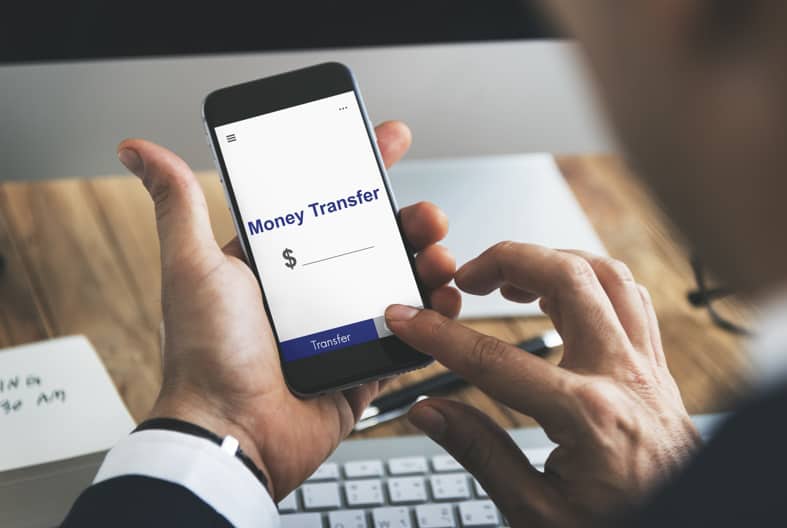
With online banking, individuals no longer need to visit physical bank branches during business hours or wait in long queues. They can easily access their accounts online through a computer or mobile device, allowing for quick and efficient transactions. Additionally, online banking provides round-the-clock availability, enabling users to check their balances, transfer funds between accounts, pay bills, and view transaction histories at any time that suits them. Another key benefit of online banking is the ability to securely manage financial information. Online banks employ advanced security measures to protect customer’s sensitive data from unauthorized access. Encryption technology is widely used to secure online banking information and ensure that it remains private during transmission over the Internet.
What Is Data Security at Banks?
Data security at banks involves implementing robust measures to protect sensitive financial information, ensuring that it remains confidential and inaccessible to unauthorized individuals. Data security is a crucial aspect of banks’ operations aimed at safeguarding customers’ personal information against unauthorized access. The overarching objective is to ensure the confidentiality and integrity of sensitive data.
The American Bankers Association highlights several key data security measures commonly employed by banks:
- Multi-factor authentication
- Encryption
- Privacy policies and training
- Fraud prevention monitoring
The recent regulatory rule, effective from May 2022, mandates that banks must report any significant data breaches to regulators within 36 hours if these breaches are likely to have a substantial impact on their operations. This collaborative effort by regulatory bodies such as the Federal Reserve Board of Governors, the Federal Deposit Insurance Corporation (FDIC), and the Office of the Comptroller of the Currency aims to enhance accountability within the banking industry. Consequently, banks are now incentivized even more strongly to prioritize robust data security measures to ensure the protection of their customer’s sensitive information.
Frequently Asked Questions
How Do I Know if My Online Bank Account Has Been Compromised?
Determining if an online bank account has been compromised requires careful observation and analysis of various indicators. One key sign of a compromised bank account is unauthorized transactions or withdrawals that appear on the account statement. It is essential to regularly review these statements and report any suspicious activity immediately to the bank. Additionally, sudden changes in personal information, such as contact details or login credentials, might indicate a breach. Monitoring one’s email inbox for unusual messages related to banking activities can also provide valuable insights into potential compromises. Furthermore, unexpected system errors or disruptions when accessing the online banking platform could signify unauthorized access attempts or security breaches.
Can Hackers Gain Access to My Online Bank Account Through My Mobile Banking App?
Hackers can potentially gain access to your online bank account through your mobile banking app if there are security vulnerabilities in the application or if you have not taken sufficient measures to protect your device. Mobile banking apps, like any other software, are susceptible to various types of attacks such as malware infections, phishing attempts, and man-in-the-middle attacks. These attacks can compromise the integrity of the app and allow hackers to intercept sensitive information like login credentials or perform unauthorized transactions.
What Steps Should I Take if I Suspect That My Online Bank Account Has Been Hacked?
The first step is to contact your bank’s customer service or fraud department and inform them about the situation. They will guide you on the necessary steps to secure your account, such as changing passwords, disabling online access, or freezing transactions. It is also advisable to monitor your account regularly for any unauthorized transactions and report them immediately.
How Often Should I Update My Online Banking Passwords?
Updating your online banking passwords regularly is an essential security measure to protect your financial information. By changing your passwords frequently, you decrease the chances of unauthorized access to your account and reduce the risk of potential breaches. The frequency at which you should update your online banking passwords depends on various factors such as the sensitivity of the information involved, the level of security provided by your bank, and any specific recommendations from your bank or other cybersecurity experts. It is generally recommended to update passwords at least every three months, but some institutions may suggest updating them more frequently, such as every 30 or 60 days.
Regular password updates are particularly crucial if you suspect any suspicious activity on your account or if there has been a data breach that could potentially compromise your login credentials. It is also advisable to create strong and unique passwords that combine letters (both uppercase and lowercase), numbers, and special characters, as well as using two-factor authentication whenever possible.
Conclusion
While there are risks associated with online banking, such as phishing attacks and malware infections, the benefits far outweigh these concerns. Online banking provides convenience and accessibility, allowing users to manage their finances from anywhere at any time. Additionally, banks have implemented robust data security measures to protect customer information. These measures include encryption technologies, firewalls, and multi-factor authentication. By following best practices and being vigilant about online security, individuals can enjoy the advantages of online banking while minimizing the potential risks. It is essential for both customers and banks to collaborate in maintaining a secure digital environment for financial transactions.

